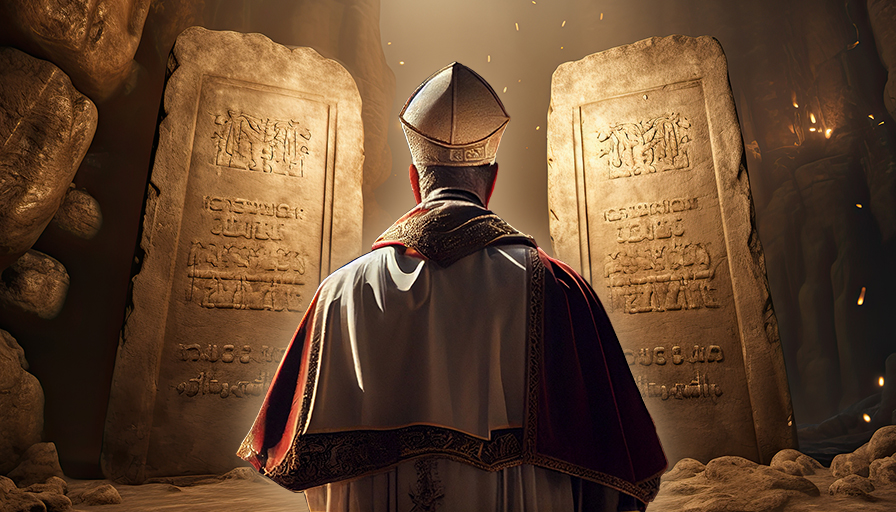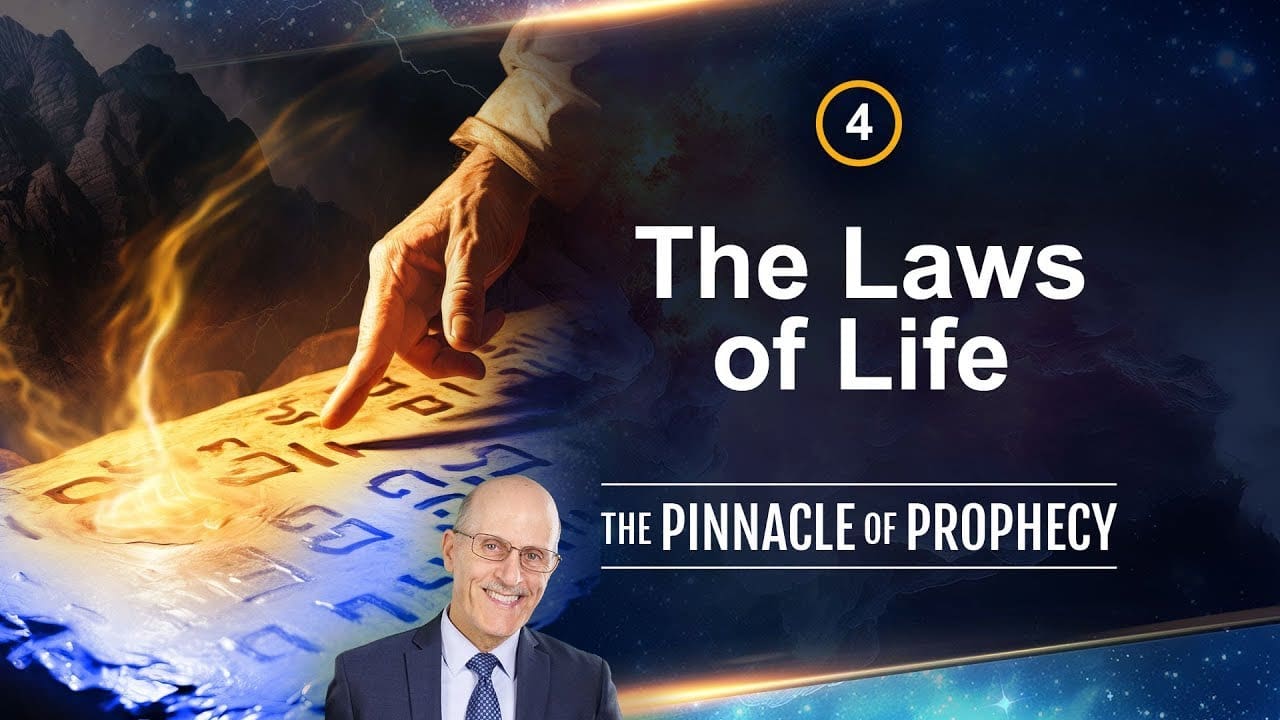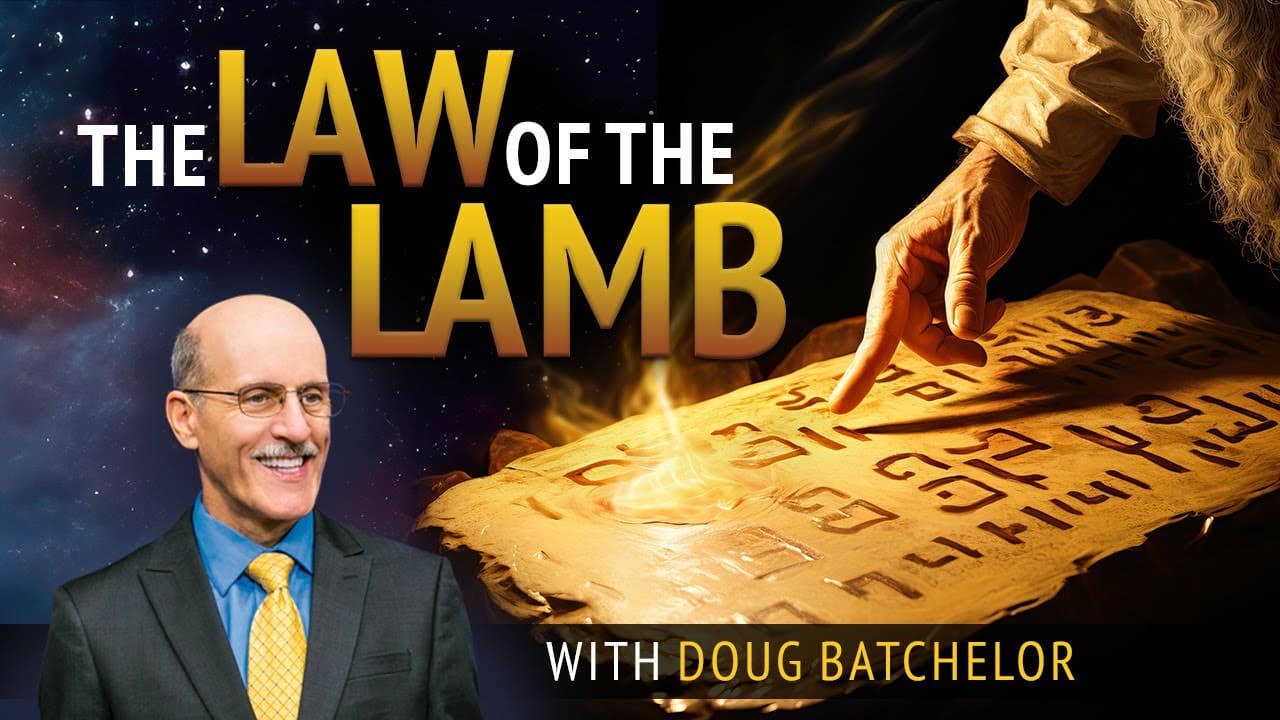The issue of lawlessness and rebellion against God’s law is a problem in our society today. Even in a nation with a Christian heritage like the United States, we witness a steady decline in moral values and an increasing disregard for God’s commandments. Crime, violence, and sinful behaviours have become all too common, causing us to question how we reached this point.
It is sad to see that even within the church, many have adopted a casual attitude towards sin and a diminishing view of the authority of God’s moral law. This attitude has led to a widespread acceptance of sinful lifestyles and behaviours that directly contradict the principles outlined in the Ten Commandments. For example, cohabitation without marriage is now considered acceptable by many, while theft and Sabbath-breaking are downplayed as insignificant transgressions.
This situation is puzzling, especially considering the historical position of Christianity regarding the authority of the Ten Commandments. Most major denominations have officially affirmed their support for the law. However, subtle errors in interpretation have led to confusion and a lack of clear loyalty to God’s commandments within the modern church. It is essential for us to diligently study the Ten Commandments, understand their relationship to God’s grace and salvation, and seek biblical answers to the questions that arise.
One of the key questions we must address is the nature of Christians’ relationship to the law. Are believers completely free from the law? What does it mean to be under the law? Does God’s grace nullify the significance of the Ten Commandments? Is it permissible for a Christian to break any of the commandments based on the understanding of being under grace? These questions require careful examination and a deep dive into the Scriptures to find authoritative answers.
In our study, it is crucial to seek the truth beyond popular clichés or common misconceptions about the relationship between law and grace. We must rely on the biblical facts to shape our understanding and guide our actions. It is only through a comprehensive study of God’s Word that we can gain clarity on these important matters and align our lives with His will.
The reality of facing a death sentence is something most of us cannot fully comprehend. However, we can relate to the guilt and fear that comes from recognizing our own sinfulness when confronted with the truth of God’s Word. The Scriptures declare that the wages of sin is death, and all of us have fallen short of God’s glory.
The weight of these words cannot be underestimated. When we read “all have sinned,” it includes every one of us. It doesn’t matter what our names are; we are all guilty before God’s law. There is no human court that can reverse this sentence and declare us innocent. The fact remains that we are guilty, just as guilty as sin itself. According to the Bible, sin is the transgression of the law, and we must plead guilty for breaking it. Whose law did we break? The Apostle Paul clarifies that it is the great Ten Commandments law, and it demands death as the consequence for transgression.
In our desperation, we search for a way to be justified in the sight of the broken law. How can we avoid the sentence of death? Can we atone for our sins by obeying God’s commandments for the rest of our lives? The answer is clear: “Therefore by the deeds of the law there shall no flesh be justified in his sight.” Works alone cannot justify a soul before God.
Consider the analogy of a criminal sentenced to jail time for theft. By serving the designated time, the person can justify themselves and satisfy the demands of the law. However, if the sentence is death, no amount of work or effort can justify the individual. Even if they were to work endlessly for a hundred years, the law would still demand death. The truth is that “without shedding of blood, there is no remission” of sins. This is why works alone can never save a sinner. The penalty for sin is death, and the law can only be satisfied through the shedding of blood.
The unchanging law with its ruthless death sentence cannot be removed or altered. The guilt of our past sins cannot be erased by future resolutions or good behaviour. We must come to the realization that we owe a debt we cannot pay. The law demands death, and we cannot satisfy it without forfeiting our own eternal life.
This is the desperate situation we find ourselves in as sinners. We need a solution beyond our own works and efforts. We need a Saviour who can meet the demands of the law and provide a way for our sins to be forgiven. Thankfully, God has provided that solution through Jesus Christ, who offered Himself as the sacrificial Lamb to bear the sins of many. Only through His shed blood can our sins be remitted, and our sentence of death be replaced with eternal life.
The question of whether it is necessary to keep the law of God is a crucial one. In Romans 6:1, Paul addresses the concept that grace gives us a license to continue in sin. His response is a resounding “God forbid!” We, who are dead to sin, should not live any longer in it.
In our current age of relativism, it is common for individuals to invent their own definitions that excuse lawbreaking. However, we must not be deceived. The Ten Commandments, which some consider irrelevant and old-fashioned, are just as timely and necessary today as they were when God gave them. Jesus came to magnify the law and reveal its spiritual application, making it even more comprehensive than the legalistic Pharisees could comprehend. Through Christ’s perfect life of obedience, we can see the spiritual details of law-keeping that are only made possible through Him.
It is important to understand what the law cannot do. While it points out sin, it has no power to save us from sin. The works of the law cannot justify or cleanse a person. Salvation comes by grace through faith as a free gift. The purpose of the law is to show us our need for cleansing and to point us to Jesus Christ, the source of true cleansing. The law acts as a mirror, revealing our true selves. Just as a mirror cannot remove a spot from our face, the law cannot cleanse us. Its role is to expose our condition and direct us to the cross for true cleansing.
We cannot earn forgiveness by striving to obey the law. Keeping the law does not earn favour or acceptance with God. The law was not given for the purpose of saving or justifying us; it was given to show us our need for a Saviour. We are saved by grace through faith, not by works. This truth is emphasized throughout the Bible. Countless sincere Christians have mistakenly believed that the Old Testament represents a dispensation of works and the New Testament a dispensation of grace. However, salvation has always been by grace through faith. In both the Old and New Testaments, people were saved by trusting in the merits of the blood of Jesus Christ. The redeemed host throughout eternity will all be sinners saved by grace, exalting the Lamb slain from the foundations of the world.
In summary, the law of God is still binding and relevant today. It exposes our need for salvation and directs us to Jesus Christ for true cleansing. Salvation is by grace through faith, not by works. The entire redeemed host will be united in acknowledging their dependence on God’s grace for salvation.
Some individuals try to dismiss the relevance of the Ten Commandments by focusing on the “new” commandments of love introduced by Christ. While it is true that Jesus summarized the law with the two great commandments of love, these commandments were not new in terms of their origin. Jesus was quoting directly from the Old Testament when He gave those commandments. They were principles that had been forgotten or neglected by the legalists of Christ’s day, but they were not intended to replace the Ten Commandments.
When asked about the greatest commandment, Jesus responded by quoting from the Old Testament, stating that love for God and love for neighbour is the base upon which all the law and the prophets hang. Love fulfills the law, as reiterated by Paul in Romans 13:10. If we truly love God with all our heart, soul, and mind, we will fulfill the first four commandments relating to our duty to God. Likewise, if we love our neighbour as ourselves, we will fulfill the last six commandments relating to our duty to others. Love leads to obedience and the fulfillment of all the law.
There is a common argument that since we are not under the law but under grace, we no longer need to keep the Ten Commandments. However, this argument fails to grasp the true meaning of being under grace. In Romans 6:14, Paul states that we are not under the law but under grace, but he immediately clarifies that this does not give us a license to sin or break the law. Being under grace does not exempt us from the obligation to obey the law. Paul’s intention is to emphasize that being under grace does not mean we can neglect the law. In fact, he strongly warns against using grace as an excuse for lawbreaking.
To understand what it means to be “not under the law,” we need to consider what Paul explains in Romans 3:19. Being under the law means being guilty before God. It implies being under the condemnation of the law due to our guilt and transgressions. Christians, who have found salvation through grace, are no longer under the guilt and condemnation of the law because they are forgiven and justified through Christ. They are under the power of grace instead. Grace empowers them to obey God’s law. The power of grace is greater than the power of sin, enabling believers to live in obedience to God’s commandments.
Using the analogy of a pardoned criminal, we can understand this concept better. When a condemned person receives a full pardon, they are no longer under the law, but under grace. However, this does not grant them permission to break the law. Instead, they are doubly obligated to obey the law as an expression of gratitude for the grace they have received. Similarly, for grace-saved Christians, the law is not nullified or removed; it is established and reinforced in their lives. Faith in Christ’s saving grace does not negate the law but upholds it.
To illustrate further, imagine being stopped by a police officer for speeding, but then receiving a pardon due to a valid emergency. The officer’s pardon does not give you the freedom to continue speeding; it emphasizes the importance of obeying the law and not repeating the offense. Likewise, as followers of Christ, we should not try to rationalize our way out of obeying God’s law. Jesus Himself said, “If you love me, keep my commandments” (John 14:15). Love for God and love for others should compel us to uphold and obey His commandments.
It is a common belief among Christians that since the law is spiritual and we are carnal, no human being can ever fully meet the requirements of the perfect law in this life. However, this belief is not in line with what the Bible teaches. God did not give the law as an impossible goal for us to strive towards but rather as a standard of righteousness that reflects His character and will for our lives.
So, while it is true that no one except Jesus has perfectly obeyed the law, it does not mean that obedience is unattainable for believers. Through faith in Christ and the empowering work of the Holy Spirit, we can strive to live in accordance with God’s commandments and reflect His righteousness in our lives.
The passage from James 2:10-12 emphasizes that breaking even one commandment makes a person guilty of sin and transgression of the entire law. Each of the Ten Commandments represents a moral principle that reveals God’s will for our lives. When we break any one of these commandments, we demonstrate our disobedience to God’s standards of righteousness.
It is important to understand that obedience to the law is not how we earn salvation. Salvation is a gift of God’s grace, received through faith in Jesus Christ. However, our obedience to God’s commandments is a response of love and gratitude for the salvation we have received. Jesus said, “If you love me, keep my commandments” (John 14:15). Genuine love for God will lead us to obey His commandments, not out of legalistic obligation, but out of a desire to honour and please Him.
The illustration of the slave auction highlights the concept of grace and our response to it. We were once held in bondage to sin and death, but Jesus paid the price to set us free. Our response to this act of grace should be one of love and devotion to our Master. We should willingly and joyfully serve Him, not out of fear, but out of deep gratitude for what He has done for us.
The sacrifice of Jesus on the cross demonstrates the unchangeable nature and authority of God’s law. The penalty for sin is death, and that penalty had to be paid. The law could not be abolished or set aside, but rather had to be satisfied. Jesus, in His perfect love and justice, took upon Himself the penalty for our sins, satisfying the requirements of the law. Through His sacrifice, the law was magnified and upheld, demonstrating its eternal validity and God’s unwavering commitment to righteousness.
Therefore, it is vital to recognize the permanence and significance of the Ten Commandments. Belittling or disregarding the law is to misunderstand and disrespect God’s government and His standards of holiness. The law serves as a reflection of God’s character and reveals His expectations for our lives. Instead of trying to meet the requirements of the law in our own strength, we should turn to Jesus, who fulfilled the law perfectly and offers us His enabling power through the indwelling of the Holy Spirit. By faith in Him, we can experience transformation and live according to the righteousness of the law.
Let us humbly acknowledge our inability to meet the perfect standard of the law and rely on the grace and power of Christ to fulfill the righteousness of the law in our lives. May we respond to God’s love and grace with wholehearted devotion and obedience, knowing that our obedience is a fruit of our love for Him and a testimony of His transforming work in us.














